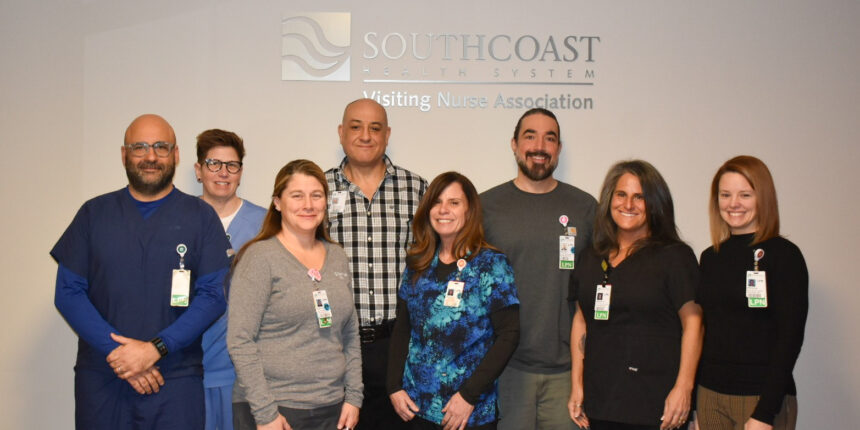News Releases
Southcoast Health Reduces In-Home Care Costs and Hospital Readmissions
with Virtual Visits and Remote Patient Monitoring

The program saved an average of four in-home nursing visits annually with a low 30-day rehospitalization rate for over 2,621 patients in the last 16 months.
The Southcoast Health Visiting Nurse Association (VNA) saved an average of
four in-home nursing visits annually, and generated over $500,000 in cost savings over the last 16 months
by leveraging remote patient monitoring (RPM) and a virtual visit program.
With the goals of improving clinicians’ workload and patient care transition, the Southcoast VNA began
their partnership with Health Recovery Solutions (HRS) for RPM in 2017. Patients enrolled in the
program are monitored daily, with clinicians responding to risk alerts based on their reported vitals and
symptoms. To quickly evaluate patients and address any concerns, providers can contact patients directly
via a virtual visit or text messaging. The virtual visit program began in 2021 leveraging the video
conferencing feature of HRS for patients on RPM.
This innovative care model replaces at least one in-person visit a week with a virtual visit, and the
additional touchpoint has significantly improved physician-patient trust and communication, while
decreasing care costs and staff workload by avoiding unnecessary in-home visits and exacerbations. The
program can also incorporate a patient’s primary care physician in a virtual visit to meet the face-to-face
CMS home health requirement.
“Our partnership with HRS and incorporating video visits into our daily routine has allowed us to provide
care outside of the patients home as well as improve outcomes in term of hospitalization and cost
savings,” says Jessica Magalhaes, Southcoast VNA’s Telehealth and Transitional Care Team Leader.
“Having the tools to connect with a patient daily and monitor their vital signs closely has allowed many
of our patients to remain at home with an improved quality of life.”
From October of 2021 until January of 2023, the Southcoast VNA’s RPM program has achieved a low
30-day readmission rate at seven percent for 2,621 high-risk patients.
The Southcoast VNA additionally offers a specialized RPM program for high-risk chronic care patients
not enrolled in home health services. Patients identified were enrolled in the RPM program for a
minimum of six months to help them develop self-management skills and reduce care costs for the health
system and ACO.
The chronic-care RPM program has also demonstrated incredible success throughout the last 16 months,
averaging another low hospital admission rate of 3% for 988 patients, with daily adherence and
satisfaction scores each above 90 percent.
Beginning in 2002, the Southcoast VNA became an early adopter of telehealth and remote patient
monitoring, launching a small program aimed at reducing hospital readmission for high-risk patients. In
2017, Southcoast partnered with Health Recovery Solutions (HRS), the KLAS-leader in remote patient
monitoring, to expand their targeted patient populations and program objectives.
“Southcoast Health has always been an innovative and exciting partner to work with,” says Jarret Bauer,
HRS’s Co-Founder and Chairman. “Improving patient care is at the crux of everything they do—whether
it’s expanding to new patient populations or launching new care models—the impact of their community
always comes first.”
By expanding their RPM partnerships across the health system, and developing new partnerships within
their ACO to meet the needs of their patients, Southcoast has shifted the goals of its RPM program to
address growing challenges in the healthcare industry—including staff retention and value-based care. In
the coming months, Southcoast looks to develop new partnerships with health plans and providers that
will collaborate with them to treat patients in need of the round-the-clock care offered by their RPM team.
To learn more about the Southcoast Health Visiting Nurse Association please visit Southcoast Visiting
Nurse Association in MA & RI | Supportive Care.
